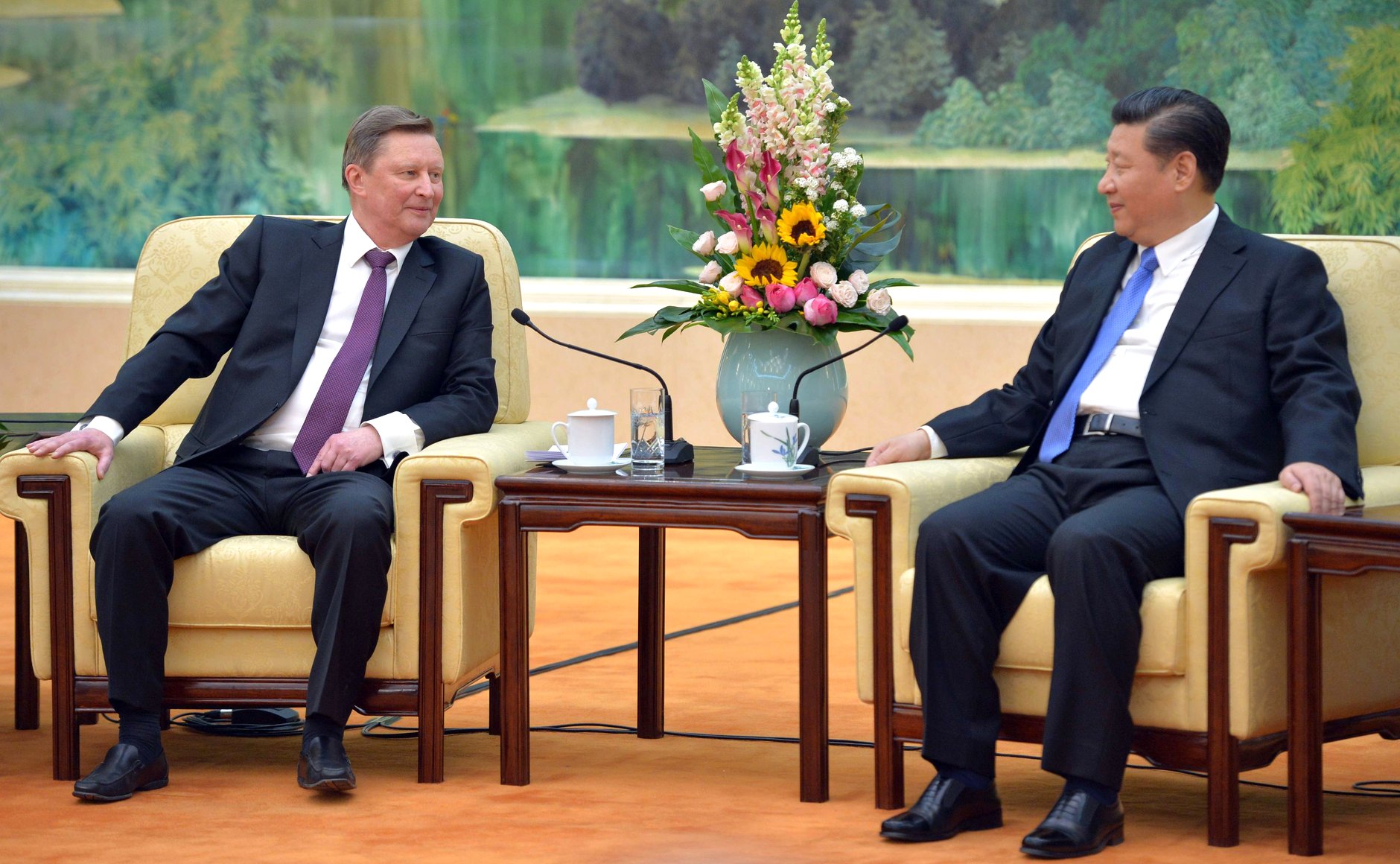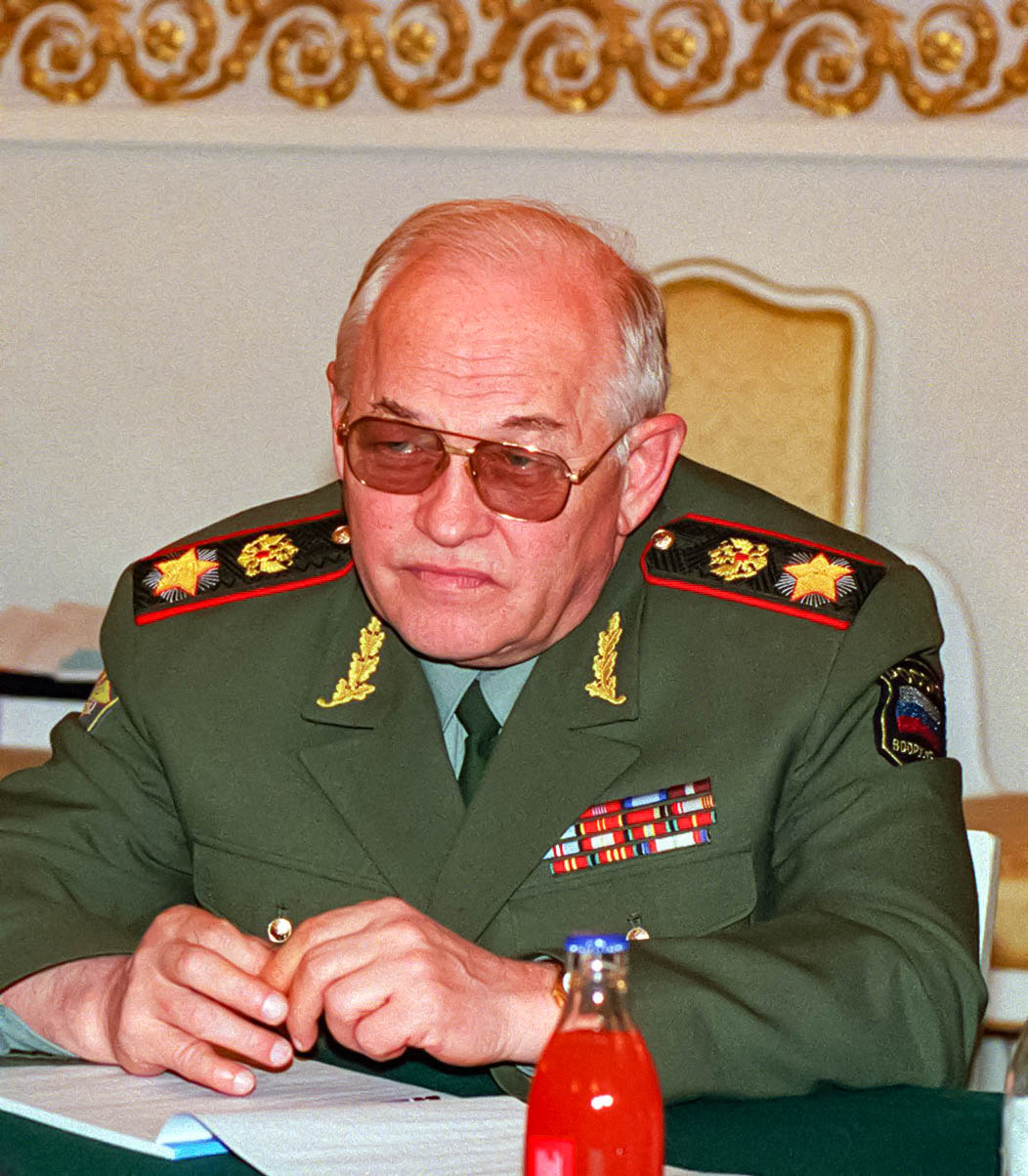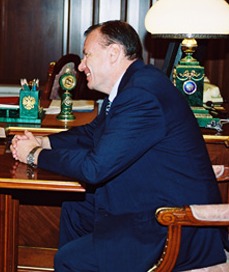|
Minister Of Defence (Russia)
The Minister of Defence of the Russian Federation (russian: Министр обороны Российской Федерации) is the minister responsible for the Russian Armed Forces. Marshal of Aviation Yevgeny Shaposhnikov was the last Minister of Defence of the Soviet Union. General Colonel Konstantin Kobets supported then President of the Russian Soviet Federative Socialist Republic Boris Yeltsin during the August coup of 1991. From 19 August until 9 September 1991, Konstantin Kobets was Defense Minister of the RSFSR, though there was no ministry. This post was then abolished. The first Minister of Defence of the Russian Federation was Boris Yeltsin, who appointed himself to the position by a decree of mid March 1992.William Eldridge Odom, 'The Collapse of the Soviet Military,' Yale University Press, 1998, , p. 385. List of Ministers of Defence Former First Deputy Ministers of Defence * Andrei Kokoshin (3 April 1992 – 25 January 1996); (25 January 1996 – 28 A ... [...More Info...] [...Related Items...] OR: [Wikipedia] [Google] [Baidu] |
Sergei Shoigu
Sergei Kuzhugetovich Shoigu, ; tyv, Сергей Күжүгет оглу Шойгу, translit=Sergey Kyzhyget oglu Shoygu, . (russian: Сергей Кужугетович Шойгу; born 21 May 1955) is a Russian politician who has served as the minister of defence of Russia since 2012. Shoigu has served as the chairman of the Council of Ministers of Defense of the Commonwealth of Independent States since 2012. Shoigu was the minister of emergency situations from 1991 to 2012. He briefly served as the governor of Moscow Oblast in 2012. A close confidant and ally of Vladimir Putin, Shoigu belongs to the ''siloviki'' of Putin's inner circle. Early life and education Shoigu was born on 21 May 1955 in Chadan in the remote and impoverished Tuvan Autonomous Oblast to an ethnic Tuvan father, newspaper editor (1921–2010) and a Ukrainian-born Russian mother, Alexandra Yakovlevna Shoigu (1924–2011). Alexandra Shoigu grew up in the Donbas town of Stakhanov and had traumat ... [...More Info...] [...Related Items...] OR: [Wikipedia] [Google] [Baidu] |
Army General (Russia)
Army general (russian: Генера́л а́рмии, Generál ármii) is the second highest military rank in Russia, inferior only to a marshal and superior to a colonel general. It is a direct counterpart of the Soviet Army General rank. At present it is also the highest rank in the air force, artillery, aerospace defense forces, armored troops, engineer troops and signal troops, unlike the Soviet Union where similarly ranked officers were called marshals and chief marshals of a branch. The corresponding naval rank is admiral of the fleet. On appointment as Defence Minister on 7 May 1992, Pavel Grachev was the first officer to be promoted to this rank. Vladimir Yakovlev was promoted to this grade while serving as commander of the Strategic Missile Forces (1997–2001). Rank insignia Since 2013, the rank insignia has been one big star and the army emblem on straps which was also used until 1997, as in the Soviet Army since 1974. Between 1997 and 2013, the rank insignia wa ... [...More Info...] [...Related Items...] OR: [Wikipedia] [Google] [Baidu] |
Sergei Ivanov
Sergei Borisovich Ivanov ( rus, Сергей Борисович Иванов, p=sʲɪrˈɡʲej bɐˈrʲisəvʲɪtɕ ɪvɐˈnof; born 31 January 1953) is a Russian senior official and politician who has served as the Special Representative of the President of Russia, President of the Russian Federation on the Issues of Environmental Activities, Ecology and Transport since 12 August 2016. Ivanov had held the posts of Minister of Defense of Russia from March 2001 to February 2007, of Deputy Prime Minister from November 2005 to February 2007, and of First Deputy Prime Minister from February 2007 to May 2008. After the 2008 Russian presidential election, election of Dmitry Medvedev as President of Russia, Ivanov was reappointed a Deputy Prime Minister (in office: 2008–2011) in Vladimir Putin's Second Cabinet, Vladimir Putin's second cabinet. From December 2011 to August 2016, Ivanov worked as the Kremlin Chief of Staff, Chief of Staff of the Presidential Administration of Russi ... [...More Info...] [...Related Items...] OR: [Wikipedia] [Google] [Baidu] |
Mikhail Kasyanov's Cabinet
Mikhail Kasyanov's Cabinet (May 2000 - March 2004) was a cabinet of the government of the Russian Federation during most of Vladimir Putin's first presidential term. It followed Vladimir Putin's Cabinet after Vladimir Putin became President of Russia and was replaced with Mikhail Fradkov's First Cabinet shortly before the presidential election of 2004. It was led by Prime Minister Mikhail Kasyanov, proposed by President Vladimir Putin after his inauguration on May 7 and approved by the State Duma and appointed Prime Minister by the President on May 17, 2000. Prior to this, Kasyanov was the Finance Minister in Vladimir Putin's Cabinet, and as Putin was promoted to acting President on December 31, 1999, de facto had led his cabinet since January 10, when he was appointed also First Deputy Prime Minister. Other 28 ministers were appointed by the President on May 18–20. Only six of them were new to the government: Gennady Bukaev, Alexander Dondukov, Alexander Gavrin, German Gre ... [...More Info...] [...Related Items...] OR: [Wikipedia] [Google] [Baidu] |
Vladimir Putin's First Cabinet
This article contains information about the First Cabinet of Vladimir Putin, in effect from 16 August 1999 to 7 May 2000. The Russian government gave its functions to the newly elected President of the Russian Federation. It was followed by . Ministers References {{Vladimir PutinPutin
Vladimir Vladimirovich Putin; (born 7 October 1952) is a Rus ...
[...More Info...] [...Related Items...] OR: [Wikipedia] [Google] [Baidu] |
Sergei Stepashin's Cabinet
Sergei Stepashin's Cabinet was the Cabinet of Russian Prime Minister Sergei Stepashin from May to August 1999. The Cabinet served under the presidency of Boris Yeltsin. Upon his appointment as Prime Minister (by a Duma vote of 301 to 55), Stepashin publicly identified a series of problems that he said faced the country, including high rates of poverty, low industrial output, high public debt and a weak legal environment. The Cabinet, and Stepashin's premiership, lasted only until August, when Yeltsin dismissed them. Stepashin stated upon his removal that "these three months haven't been wasted, we have managed to keep the situation in the country under control. The ruble hasn't plunged contrary to many predictions". Stepashin was replaced by Vladimir Putin Vladimir Vladimirovich Putin; (born 7 October 1952) is a Russian politician and former intelligence officer who holds the office of president of Russia. Putin has served continuously as president or prime minister si ... [...More Info...] [...Related Items...] OR: [Wikipedia] [Google] [Baidu] |
Yevgeny Primakov's Cabinet
Yevgeny Primakov's Cabinet (September 11, 1998, - May 12, 1999) was the seventh cabinet of government of the Russian Federation, preceded by Sergei Kiriyenko's Cabinet fallen as a result of the 1998 Russian financial crisis and followed by Sergei Stepashin's Cabinet. It was led by Prime Minister Yevgeny Primakov, proposed by President Boris Yeltsin on September 10, 1998, as Viktor Chernomyrdin had failed to be approved by the State Duma twice by September 7 (August 31: 94 in favor, 252 against, nobody abstained, September 7: 138 in favor, 273 against, 1 abstained According to the Constitution of Russia, if parliament rejects the president's nomination three times, then parliament must be dissolved and a general election held. On September 11 Primakov was approved by the Duma as Prime Minister (317 in favor, 63 against, 15 abstained) and appointed Prime Minister by the President. In the State Duma only Vladimir Zhirinovsky's Liberal Democratic Party of Russia was both in favor of Ch ... [...More Info...] [...Related Items...] OR: [Wikipedia] [Google] [Baidu] |
Sergey Kiriyenko's Cabinet
Sergei Kiriyenko's Cabinet (March 23, 1998 - August 23, 1998) was the sixth cabinet of government of the Russian Federation, preceded by Viktor Chernomyrdin's Second Cabinet and followed by Yevgeny Primakov's Cabinet. It was led by Prime Minister Sergey Kiriyenko, appointed acting Prime Minister on March 23 and proposed to the State Duma for approvement on March 27, 1998. On April 10 and April 17 Duma disapproved him as Prime Minister twice (April 10: 143 in favor, 186 against, 5 abstained, April 17: 115 in favor, 271 against, 11 abstained), but on the third time on April 24 he was approved by the State Duma (251 in favor, 25 against) and appointed Prime Minister by the President. According to the Constitution of Russia, if the State Duma rejects the President's nomination three times, it must be dissolved and a parliamentary election held. According to the Russian legislation, the ministers were appointed by the President. On August 23, 1998 Yeltsin sacked the government after t ... [...More Info...] [...Related Items...] OR: [Wikipedia] [Google] [Baidu] |
Marshal Of The Russian Federation
Marshal of the Russian Federation ( rus, Маршал Российской Федерации, r=Marshal Rossiyskoy Federatsii) is the highest military rank of Russia, created in 1993 following the dissolution of the Soviet Union. It ranks immediately above Army general and Admiral of the fleet (also called Fleet Admiral in some English-language texts), and is considered the successor to the Soviet-era rank of Marshal of the Soviet Union. A Marshal of the Russian Federation outranks Generals of the Army (four stars), Colonel-Generals (three stars), Lieutenant-Generals (two stars) and Major-Generals (one star). It is roughly equivalent to American General of the Army and the British Field Marshal. The only officer so far to have held the rank was Igor Sergeyev, the former Minister of Defence, who had been elevated from the General of the Army of the Strategic Rocket Forces. Sergeyev was a Marshal of the Russian Federation from 1997 until his death in 2006. The insignia for ... [...More Info...] [...Related Items...] OR: [Wikipedia] [Google] [Baidu] |
Igor Sergeyev
Igor Dmitriyevich Sergeyev (; 20 April 1938 – 10 November 2006) was a Soviet and later Russian military officer who was Minister of Defense of Russia from 22 May 1997 to 28 March 2001. He was the first and, as of 2022, the only Marshal of the Russian Federation. Career Sergeyev served briefly in the Navy but later transferred to the Army, where he spent most of his career in the Strategic Rocket Forces. Sergeyev became commander in chief of the Strategic Rocket Forces in 1992. In this position he was in charge of securing the former USSR's nuclear weapons. Defense Minister Sergeyev was appointed Minister of Defense in 1997 by Russian President Boris Yeltsin. He was promoted to Marshal of the Russian Federation on 21 November 1997, the only Russian military officer to achieve that rank. Marshal Sergeyev accepted reform within a limited budget under civilian political control. The number of military educational establishments was reduced markedly from their previous levels, wh ... [...More Info...] [...Related Items...] OR: [Wikipedia] [Google] [Baidu] |
Viktor Chernomyrdin's Second Cabinet
Viktor Chernomyrdin's Second Cabinet acted under President Boris Yeltsin from August 10, 1996 until March 23, 1998. The State Duma overwhelmingly confirmed reappointment of Chernomyrdin as head of the Cabinet, with 314 deputies voting in favor, far more than the simple majority of 216 needed for approval and 85 deputies were opposed.Communists Accept Yeltsin's Appointment, Chicago Tribune, August 11, 1996 Composition References {{Russian Government Cabinets Chernomyrdin Viktor Stepanovich Chernomyrdin (russian: Ви́ктор Степа́нович Черномы́рдин, ; 9 April 19383 November 2010) was a Soviet and Russian politician and businessman. He was the Minister of Gas Industry of the Soviet Unio ... 1996 establishments in Russia 1998 disestablishments in Russia Cabinets established in 1996 Cabinets disestablished in 1998 ... [...More Info...] [...Related Items...] OR: [Wikipedia] [Google] [Baidu] |
Igor Rodionov
Igor Nikolayevich Rodionov (russian: Игорь Николаевич Родионов; 1 December 1936 – 19 December 2014) was a Russian general and Duma deputy. He is best known as a hardline politician, and for his service heading the Defence Ministry of the Russian Federation. Rodionov served as a Soviet Army officer in East Germany, Czechoslovakia, the Far East and several other areas around the world. Then-Major Rodionov commanded a motorized rifle regiment in the famed 24th Motorized Rifle Division (the "Iron Division") in the Carpathian Military District from 1970 to 1973, and later commanded the 17th Motor Rifle Division in the same District. He commanded the 5th Army in the Far East Military District from 1983 to 1985 and then the key 40th Army in Afghanistan in 1985–1986. He held the post of First Deputy Chief Commander of the Moscow Military District from 1986 until 1988, when Colonel General Rodionov was appointed Commander of the Transcaucasus Military District ... [...More Info...] [...Related Items...] OR: [Wikipedia] [Google] [Baidu] |



